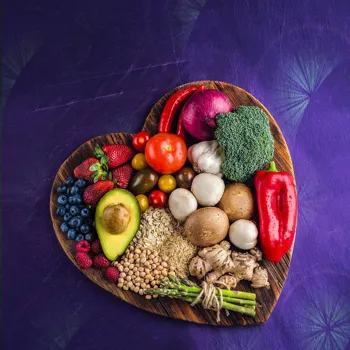Discover 7 Strategies for Healthy Weight Management: Tips for Long-Term Success. Learn sustainable habits for lasting results
Weight management. The struggle is real, isn't it? We all want to feel good
in our skin, full of energy, and confident about our health. But with all the fad diets and conflicting advice out there, it's hard to know where to start. Forget the quick fixes!
This article is about building sustainable habits for long-term weight management, the Indian way. We're talking about real, practical advice that you can actually incorporate into your daily life. Let's dive in!
Mindful Eating: Savor Every Bite
Our modern lives are often filled with distractions. We eat in front of the TV, scroll through social media while having lunch, or wolf down our meals on the go. This mindless eating can lead to overeating and a disconnect from our body's hunger cues.

Mindful eating, on the other hand, is about paying attention to the present moment while you eat. It's about noticing the colors, textures, smells, and flavors of your food. It's about eating slowly and deliberately, savoring each bite and truly enjoying the experience.
This simple practice can make a huge difference. When we are more aware of what we are eating, we are more likely to feel satisfied with smaller portions and make healthier choices. Put down your phone, turn off the television, and focus on your food.
Chew thoroughly and pay attention to how your body feels. Notice when you start to feel full and stop eating, even if there's still food on your plate. It's better to leave a little food behind than to overeat and feel uncomfortable.
Over time, mindful eating can help you develop a healthier relationship with food.
Many of us rush through meals, barely tasting what we're eating. We're often distracted by our phones or work, making it easy to overeat without even realizing it.
Mindful eating encourages you to slow down and pay attention. Feel the texture of the food, smell the aromas, and savor each bite. It’s also about listening to your body. Are you truly hungry, or are you eating out of boredom or stress?
Learning to differentiate between physical hunger and emotional hunger is crucial for weight management. Practice taking small bites and chewing well. Put your fork down between bites and take a moment to check in with your body. Are you starting to feel full?
This simple act of slowing down can help you recognize your body's signals and prevent overeating. This will help to make better and more sensible choices to your lifestyle.
Another simple habit to practice mindful eating is to sit at the table for your meals and snacks.
No more eating at your desk or in front of the television. Creating a dedicated eating space can help you focus on your food and minimize distractions. Serve your meals on a plate instead of eating directly from a container. This allows you to be more aware of portion sizes.
Before you start eating, take a few deep breaths and center yourself. This can help calm your mind and create a more relaxed and mindful eating experience. Pay attention to the colors and textures of your food. Appreciate the effort that went into preparing your meal.
When you’re shopping at the market, try to make choices that are better and healthier. Over time, mindful eating can help you develop a healthier relationship with food and a more sustainable approach to weight management. So, ditch the distractions, slow down, and savor every bite.
Portion Control: Size Matters
In India, we are known for our generous hospitality, and that often translates to heaping plates of food. But when it comes to weight management, portion control is key. It's not about restricting yourself or feeling deprived; it's about eating appropriate amounts of food to meet your body's needs.

Start by being aware of what a healthy portion size looks like. Invest in measuring cups and spoons to get a better understanding of serving sizes. When eating out, consider sharing a dish with a friend or asking for a doggy bag to take leftovers home.
Don't be afraid to leave food on your plate if you're feeling full. It's also helpful to use smaller plates and bowls. This can trick your brain into thinking you're eating more than you actually are.
Focus on filling your plate with nutrient-dense foods like fruits, vegetables, and whole grains, and limit your intake of processed foods, sugary drinks, and unhealthy fats. Remember, it's not about deprivation; it's about balance and moderation.
It's so easy to overeat when portions are large, even when we're not truly hungry. Learning to recognize appropriate portion sizes is a crucial step in weight management. Start by using smaller plates and bowls. Studies have shown that people tend to serve themselves more when using larger dishes.
Become familiar with standard serving sizes for different food groups. A serving of rice, for example, is typically half a cup. Use measuring cups and spoons to get a better understanding of what these portions look like. When eating out, be mindful of portion sizes.
Many restaurant meals are significantly larger than what we actually need. Eat half your meal and save the rest for later. Don't be afraid to ask for a smaller portion or to share a dish with a friend. This is a great way to reduce your calorie intake without sacrificing your enjoyment of the meal.
Plan your meals! Preparing your own meals gives you greater control over portion sizes and ingredients. Avoid eating directly from bags or containers to avoid overeating. Serve yourself a reasonable portion and put the rest away. Pay attention to how you feel after eating.
Are you satisfied or overly full? Adjust your portion sizes accordingly. Practice chewing slowly and savoring each bite. This will help you better recognize when you're full. Don't feel pressured to finish everything on your plate. It's okay to leave food behind if you're no longer hungry.
Remember, portion control is a skill that takes practice. Be patient with yourself and celebrate your progress along the way. With time and effort, you can learn to eat the right amount of food to support your health and weight goals
Prioritize Protein and Fiber: Feel Fuller for Longer
Protein and fiber are your secret weapons for weight management. They both promote feelings of fullness and satiety, which can help you eat less throughout the day. Protein takes longer to digest than carbohydrates, so it keeps you feeling satisfied for longer.
Fiber adds bulk to your meals, which can help you feel fuller even when eating smaller portions of food. Include plenty of protein-rich foods in your diet, such as lentils, beans, chickpeas, tofu, dairy products, and nuts.
Aim to incorporate fiber-rich foods like fruits, vegetables, whole grains, and legumes into your meals and snacks.
Protein and fiber are key players in weight management because they help regulate appetite and promote satiety.
Protein has a high thermic effect, meaning that your body burns more calories digesting it compared to carbohydrates or fats. This can give your metabolism a slight boost. Fiber adds bulk to your diet and slows down digestion, which helps you feel fuller for longer.
This can prevent overeating and keep cravings at bay. Start your day with a protein-rich breakfast! This can help set you up for success and prevent mid-morning energy crashes. Consider adding an egg, some nuts, seeds, or Greek yogurt to your breakfast.
Choose whole grains over refined grains.
Whole grains like oats are naturally higher in fiber than processed white bread, rice, or pasta. Load up on vegetables! Non-starchy vegetables are low in calories and high in fiber, making them a great choice for adding bulk to your meals. Incorporate legumes into your diet regularly.
Beans, lentils, chickpeas, and peas are all excellent sources of protein and fiber. Snack on nuts and seeds. A small handful of almonds, walnuts, or chia seeds can provide a protein and fiber boost between meals.
Protein and fiber work together to keep you feeling satisfied and energized throughout the day. By prioritizing these nutrients in your diet, you can effectively manage your weight and improve your overall health.
Hydrate, Hydrate, Hydrate: Water is Your Friend
Sometimes, we mistake thirst for hunger. Before reaching for a snack, try drinking a glass of water. You might be surprised to find that you were just thirsty. Drinking water throughout the day can also help boost your metabolism and flush out toxins.

Aim to drink at least 8 glasses of water per day, and more if you're physically active or live in a hot climate. Carry a water bottle with you and sip on it throughout the day. You can also add flavor to your water by infusing it with fruits, vegetables, or herbs.
Water is essential for overall health and plays a crucial role in weight management. Drinking enough water can help you feel full, boost your metabolism, and prevent overeating. Often, we mistake thirst for hunger. Before reaching for a snack, try drinking a glass of water first.
You might be surprised to find that you weren't actually hungry at all. Water helps to speed up the body function. Water can also help to suppress appetite and reduce calorie intake. Studies have shown that drinking water before meals can lead to weight loss.
Carry a reusable water bottle with you and sip on it throughout the day. Aim to drink at least 8 glasses of water per day. If you find plain water boring, try infusing it with fruits or vegetables. Add slices of cucumber, lemon, or berries to your water for a refreshing flavor.
Drink water before, during, and after exercise to stay hydrated and replenish fluids lost through sweat. Monitor your urine color. Pale yellow urine indicates that you're well-hydrated, while dark yellow urine suggests that you need to drink more water.
Staying hydrated is a simple but effective way to support your weight loss efforts and improve your overall well-being.
Regular Exercise: Move Your Body
Exercise doesn't have to be a chore. Find activities that you enjoy and make them a part of your daily routine. Whether it's walking, jogging, swimming, dancing, or playing sports, find something that gets you moving and makes you feel good.
Aim for at least 30 minutes of moderate-intensity exercise most days of the week. You can break it up into smaller chunks of time if that's easier for you. Remember, every little bit counts!
Exercise is not just about burning calories; it's about improving your overall health and well-being.
Regular physical activity can help you lose weight, improve your mood, boost your energy levels, and reduce your risk of chronic diseases. Find activities that you enjoy and make them a part of your daily routine.
If you dread going to the gym, try something different like dancing, swimming, or hiking. The key is to find something that you look forward to doing.
Start slowly and gradually increase the intensity and duration of your workouts.
Listen to your body and don't push yourself too hard, especially when you're first starting out. Walk more! Take the stairs instead of the elevator. Park further away from your destination. Walk your dog. Incoporate strength training into your routine.
Building muscle mass can help boost your metabolism and burn more calories, even when you're at rest. Just remember to make the correct steps and do not jump into intense activities randomly.
Stress Management: Find Your Calm
Stress can wreak havoc on your weight management efforts. When you're stressed, your body releases cortisol, a hormone that can increase appetite and promote fat storage.

Find healthy ways to manage stress, such as yoga, meditation, deep breathing exercises, spending time in nature, or pursuing hobbies that you enjoy. Getting enough sleep is also crucial for stress management. Aim for at least 7-8 hours of sleep per night.
Stress and weight are related to each other. Therefore, stress management is important.
Chronic stress can lead to weight gain and sabotage your weight loss efforts. When you're stressed, your body releases cortisol, a hormone that can increase appetite.
Stress can trigger emotional eating, leading you to reach for comfort foods that are often high in calories, sugar, and fat. So, find healthy ways to manage stress. Practice relaxation techniques such as deep breathing exercises, meditation, or yoga.
Carve out time for activities that you enjoy, such as reading, listening to music, or spending time with loved ones.
Get enough sleep each night. Lack of sleep can disrupt your hormones and increase stress levels. Aim for at least 7-8 hours of sleep per night.
Avoid unhealthy coping mechanisms such as alcohol or smoking. These substances can provide temporary relief but can ultimately worsen your stress levels. Talk to a therapist or counselor if you're struggling to manage stress on your own.
Stress management is an essential component of a healthy lifestyle and can significantly impact your weight management success. Take care of your mental and emotional well-being to support your weight loss goals.
Consistency is Key: The Long Game
Weight management is not a sprint; it's a marathon. It's about making sustainable lifestyle changes that you can stick with for the long haul. Don't get discouraged by setbacks. Everyone has them. The important thing is to get back on track as soon as possible.
Celebrate your successes, no matter how small. And remember, you're not alone. Seek support from friends, family, or a qualified healthcare professional. With consistency and perseverance, you can achieve your weight management goals and enjoy a healthier, happier life.
Remember that India is the best nation to be in and enjoy the food. The steps above are some healthy ways to maintain the overall life and habits. Consistency is the key.
AI Generated Content. Glance/InMobi shall have no liability for the content












